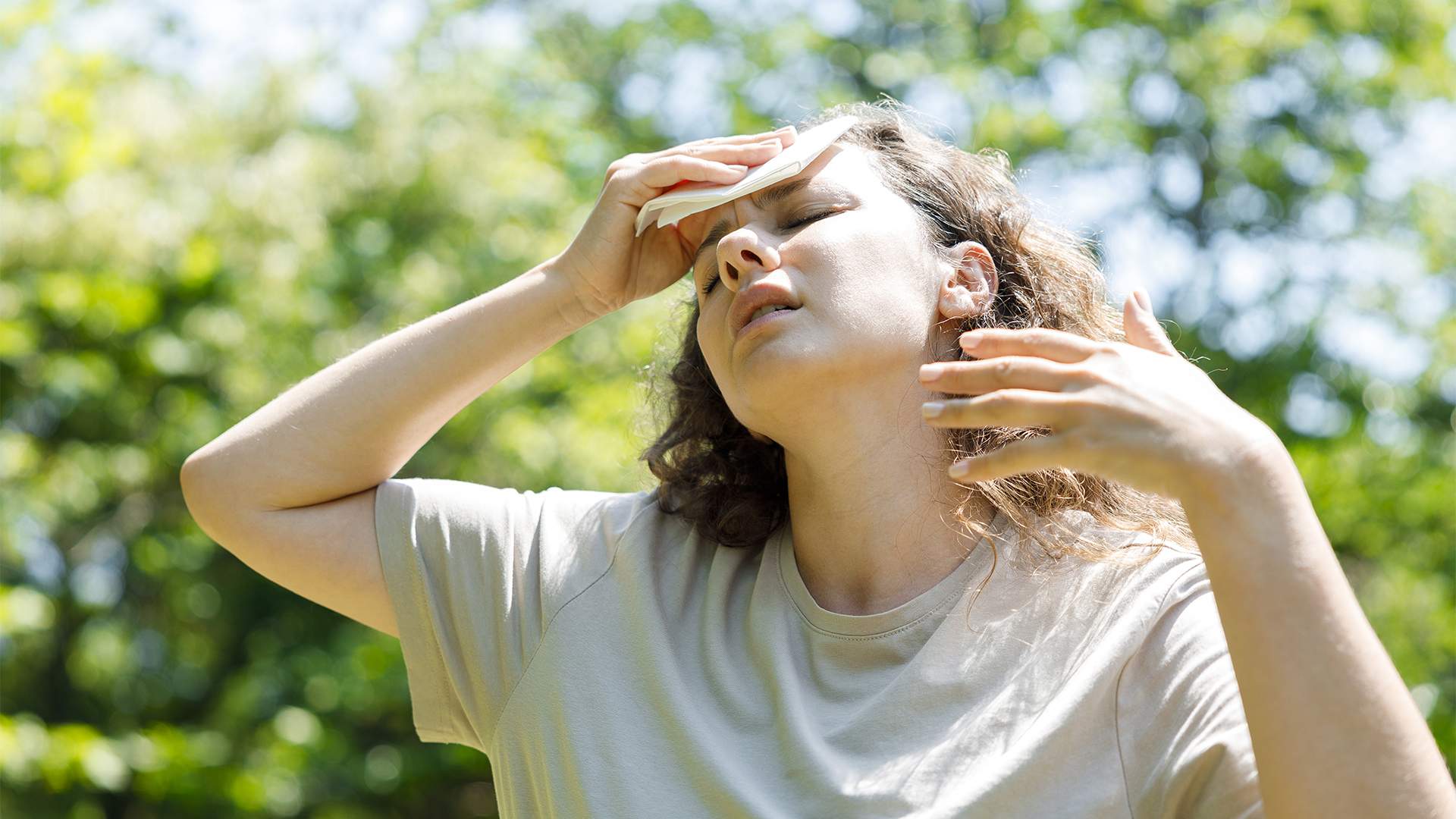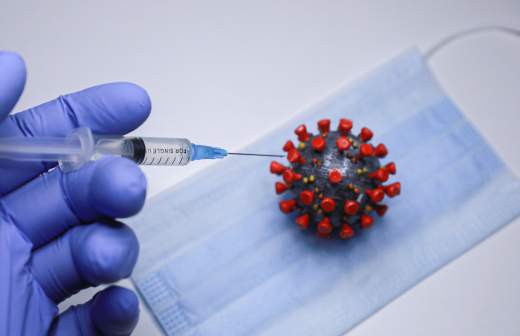Summery, angry: what diagnoses annoy in hot weather

Even the long-awaited summer can cause health problems. Doctors advise to prepare in advance for hot weather in order to avoid the development of seasonal diseases and exacerbation of chronic ones. What to pay attention to in the summer heat, how to minimize health risks, and why it is most difficult for heart patients — in the Izvestia article.
How to protect yourself from food infections
Summer is the season when acute respiratory viral infections disappear, and foodborne infections prevail, warns Denis Prokofiev, a general practitioner with the status of "Moscow Doctor."
— Intestinal infections are activated, in particular, due to the fact that people sometimes use products that, for various reasons, are stored in violation of temperature conditions. Nature trips and barbecue picnics are also popular in summer, when sometimes bacterial flora that causes poisoning is inevitable in food, says Dr. Prokofiev.
The rules for the prevention of intestinal infections are mainly reduced to compliance with the requirements of personal hygiene, proper preparation and storage of food, and cleanliness in the place where it is prepared. And the national vaccination calendar provides for vaccination against infections such as dysentery, rotavirus, cholera, and typhoid fever.
In the second place in the ranking of "summer" health problems are problems related to the negative effects of sunlight. First of all, these are sunburn and sunstroke, allergic reactions to the sun, Prokofiev notes.
Doctors recommend avoiding exposure to the sun from 11 a.m. to 5 p.m., and at other times, if possible, stay in the shade if there is a predisposition to sunburn. It is important to use sunscreens when choosing medications with a high protection factor (SPF 30-50). It makes sense to apply them half an hour before going outside.
— All sunscreens have a number on them, it indicates the amount of time you can stay in the sun. Sunburn should not be allowed, because excessive exposure to ultraviolet rays is one of the key factors in the development of skin cancer, namely melanoma," the general practitioner comments.
Dr. Prokofiev urges special caution for people with fair skin, with a large number of age spots, and nevi. They are primarily at risk.
— If a child is sunbathing uncontrollably and gets burned, then the development of melanoma may occur 5-10 years after such burns. It's worth remembering this," warns the general practitioner.
A light-colored headdress will protect you from sunstroke. In the heat, it is advisable to drink more water. It is even recommended to give preference to hot tea in order to improve the body's heat exchange. But with high humidity, it is better to choose cool drinks or water at room temperature.
To minimize the effects of allergies, doctors also recommend limiting sun exposure, wearing protective clothing, and getting your skin used to sunlight in advance to reduce the risk of an acute reaction. In the heat, it is better not to use aggressive scrubs and peels, so as not to deprive the skin of its protective power.
When to turn off the air conditioner
Denis Prokofiev draws attention to the danger associated with a sharp temperature drop when people leave the air-conditioned room in the heat. In some stores, the temperature is maintained at 18 degrees, while outside it can be 30 degrees or higher. A significant difference leads to the fact that thermoregulation processes are disrupted and a person becomes the most vulnerable to viruses.
— Therefore, many "summer" diseases are associated with the development of bronchitis, tonsillitis, tracheitis. That is, diseases of the upper respiratory tract are a consequence of sudden temperature changes that weaken our immune system. We are becoming extremely susceptible to any bacterial and viral infections," comments Denis Prokofiev
The general practitioner strongly advises against such sudden changes. For example, before leaving the apartment, you must first turn off the air conditioner and wait for the difference between the temperatures at home and outside to be no more than 10 degrees.
— The same goes for the car. When you realize that the trip is coming to an end, you need to turn off the air conditioner and sit in the cabin until the temperature returns to normal. And only then go outside — then the risks will be minimized," says Dr. Prokofiev.
In a store or on public transport, it is better to throw a "duty" jacket or stole over your shoulders — it is better to carry such clothes with you in the heat, like an umbrella in rainy weather.
But it makes no sense to be afraid of cold water and ice cream in the summer, the doctor believes.
— Cold water alone cannot provoke any disease. Quickly enough, any liquid or any ice cream will acquire body temperature — it is always constant. Of course, they should be consumed moderately and wisely, then there will be no negative consequences," comments Dr. Prokofiev.
In summer, you should review your drinking regime — the amount of water in the diet should be increased.
— This is necessary because dehydration in the sun is a common problem, fraught with the risk of unconsciousness. The fact is that against the background of an increase in temperature, our skin begins to give off a large amount of heat, sweating increases, and the volume of fluid circulating in the body is lost. This entails certain problems, starting from an episode of loss of consciousness and ending with the development of urolithiasis," explains Denis Prokofiev.
Doctors recommend consuming 2-2.5 liters of plain water daily.
Chronic diseases in summer
Olga Chistik, a therapist at the Scandinavian Health Center, notes that heat is especially dangerous for chronic diseases. Shortness of breath, fatigue and pressure surges in summer are perceived by many as a common reaction to the heat. However, in people with chronic diseases, these symptoms may signal a dangerous deterioration of the condition.
— During heat, the body loses fluid and salts, the volume of circulating blood decreases, and its viscosity increases, — says Olga Chistik. — This increases the risk of blood clots and impairs oxygen delivery to the tissues. Such changes are especially dangerous for people with cardiovascular, endocrine, and renal disorders, as well as for those recovering from a stroke.
First of all, people with cardiovascular diseases are at risk.
"Patients with ischemia, heart failure, and hypertension are more likely to have arrhythmia attacks, hypertensive crises (sudden pressure surges that are life—threatening), and in severe cases, heart attacks and strokes," comments Olga Chistik. — Due to the high air temperature, blood vessels expand, blood pressure decreases and the pulse rate increases. The blood thickens, the electrolyte balance is disrupted, and the load on the heart increases.
In hot weather, it is necessary to treat yourself carefully to those who have been diagnosed with diabetes mellitus in their medical history. Sweating increases in the heat, and if you do not follow the drinking regime, then sugar levels fluctuate sharply due to dehydration, Olga Chistik emphasizes.
Kidney disease is also on the list of problems that should be kept under control.
— Due to dehydration, the blood supply to the kidneys deteriorates and the filtration rate decreases, which can lead to acute renal failure. In chronic pathologies, heat exacerbates the course of the disease, the therapist warns.
Skin diseases also require special care. According to Olga Chistik, ultraviolet light provokes photodermatitis (skin inflammation from sunlight), eczema and psoriasis. Sweat and humidity increase skin inflammation, can cause acne, fungal infections. Without sun protection, the risk of burns and pigmentation increases.
The therapist advises such patients to pay attention to the body's signals in order to take timely action.
— Sudden weakness, dizziness, sticky sweat, redness of the face are possible signs of heat stroke. In people with chronic diseases, alarming symptoms may include chest pain and shortness of breath (in heart patients), a sharp spike in blood pressure (in hypertensive patients), impaired consciousness or severe thirst (in diabetics), the expert comments.
With such signs, it is necessary to go into the shade, cool off and call for help. To avoid exacerbations of chronic diseases, Olga Chistik advises to follow a drinking regime, wear light clothing, protect your head and face from the sun, and avoid overheating. It is better to plan physical activity in the morning or evening, and supplement the diet with foods with potassium and magnesium — if they are deficient, the risk of arrhythmia and vascular complications increases. According to the therapist, it is not recommended to change the treatment regimen yourself in the heat. The decision to adjust the dosage of drugs should be made by a doctor.
Переведено сервисом «Яндекс Переводчик»











